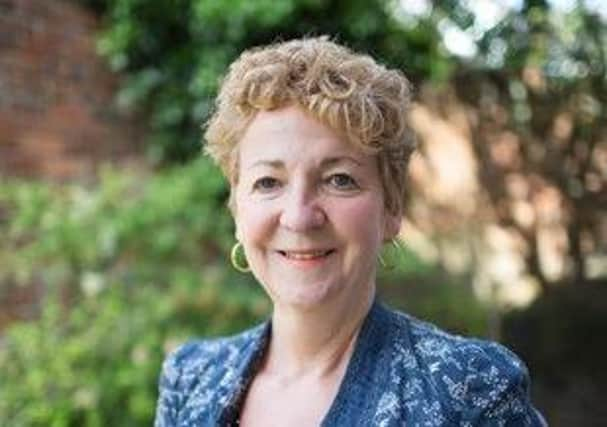Treat people with a learning disability as equal citizens and regard the money spent on them as an investment, rather than as a burden


In those 25 years, we have seen remarkable advances in technology, in human rights and in social policies that recognise people’s differences and different needs. When it comes to learning disability, however, the pace of change has been glacial.
It’s time we, as a society, took a different approach.
We live in a world where it’s deemed acceptable by government departments to pay consultants £7,000 a day, but unacceptable to spend money on, for example, children with additional educational needs, as we saw with the recent outcry over allocation of funding in this area. The former is seen as a necessity, the latter as a drain on public finances.
Advertisement
Hide AdAdvertisement
Hide AdThat is why we need to change the terms of the debate. Children and adults with a learning disability and their families are sick of being regarded as a burden.
Society doesn’t see them as individuals, but as one homogenous group. We do things for them or to them, without bothering to ask what they would like to do themselves. In many parts of health and social care, they are referred to as “service users,” which itself implies that they are people who don’t contribute, but rather make demands for assistance.
That’s why we established Positive Futures. We work hard to ensure that people have a voice and a say in how they are supported — and in how the organisation is managed and governed.
We have an Advisory Board, which made up of people with a learning disability, including some of the people we support, which contributes to operational and strategic decision-making. We facilitate people to have the power to make decisions about their own lives. All parts of society need to do the same.
Advertisement
Hide AdAdvertisement
Hide AdAnd here’s the essence of what we have discovered over the course of 25 years: if you regard children with a learning disability and their families as equally worthy of investment rather than as a drain on resources, supporting them will cost less in the long term. I would argue that the failure of the system begins in childhood.
If support begins early enough, it prevents more expensive interventions and support in later life. This is where we need to focus our discussion about cost.
If you have read this far, I’d like to ask you a question. How would you like to be regarded as a burden all your life? That’s often what people with a learning disability tell us it feels like.
Far too often, we fail to see the contribution people with a learning disability can make to our society and instead, for reasons often described as ‘ in the person’s best interests,’ we adopt a protective, paternalistic approach which denies people the opportunity to make choices, have control over their lives and contribute to a richer, more inclusive community.
Advertisement
Hide AdAdvertisement
Hide AdSo let’s change the terms of the debate. Treat people with a learning disability as equal citizens and regard the money society spends on them as an investment for the future, rather than as a financial burden. That’s what we at Positive Futures have been doing for the past 25 years.
And it works.
• Agnes Lunny is chief executive of Positive Futures, which supports children and adults with a learning disability, acquired brain injury or autistic spectrum condition
• Ben Lowry: Response to my tweet on special needs shows how Northern Ireland could become ungovernable
——— ———
A message from the Editor:
Advertisement
Hide AdAdvertisement
Hide AdThank you for reading this story on our website. While I have your attention, I also have an important request to make of you.
With the coronavirus lockdown having a major impact on many of our advertisers — and consequently the revenue we receive — we are more reliant than ever on you taking out a digital subscription.
Subscribe to newsletter.co.uk and enjoy unlimited access to the best Northern Ireland and UK news and information online and on our app. With a digital subscription, you can read more than 5 articles, see fewer ads, enjoy faster load times, and get access to exclusive newsletters and content. Visit https://www.newsletter.co.uk/subscriptions now to sign up.
Our journalism costs money and we rely on advertising, print and digital revenues to help to support them. By supporting us, we are able to support you in providing trusted, fact-checked content for this website.
Alistair Bushe
Editor